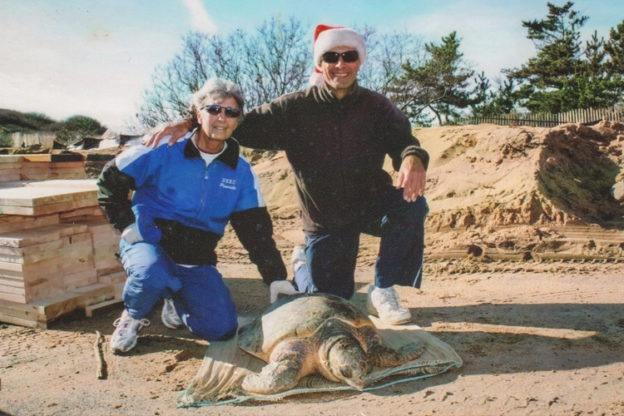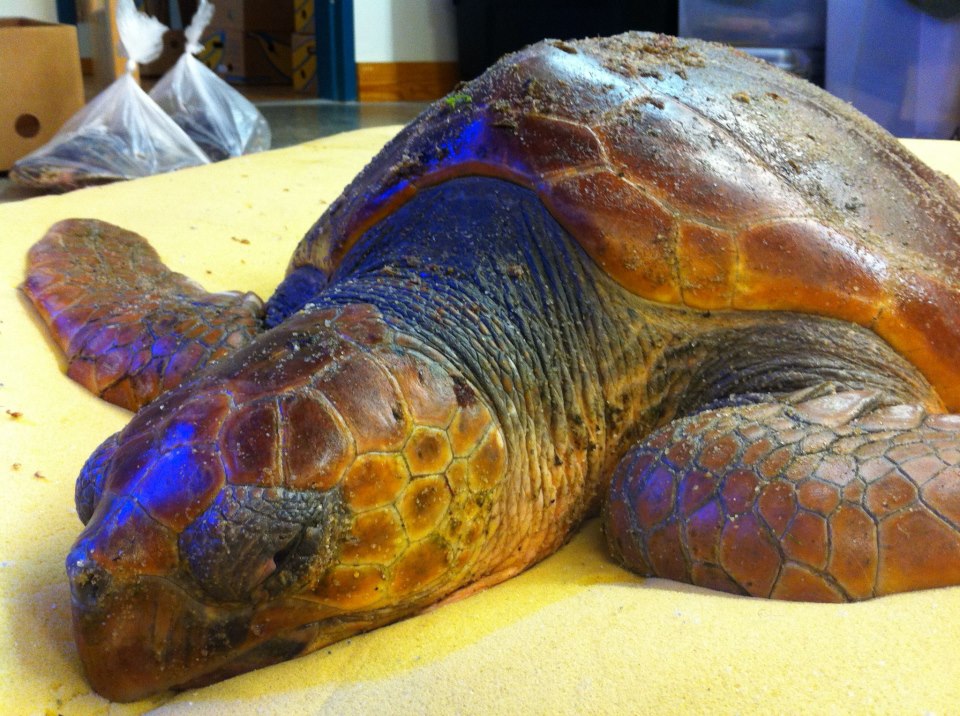Barbara Brennessel is a long-time volunteer at Mass Audubon’s Wellfleet Bay Wildlife Sanctuary, where her work includes cold-stunned sea turtle rescue.
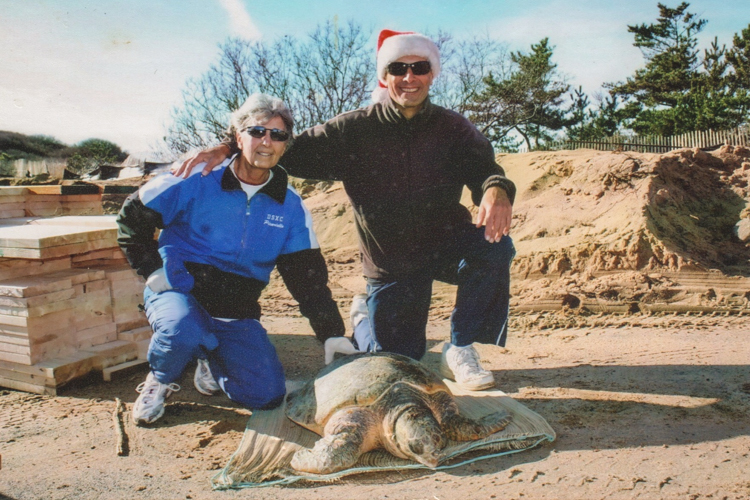
My husband Nick and I have volunteered at Wellfleet Bay Wildlife Sanctuary for more than 15 years. In the spring, we survey and tag Horseshoe Crabs in Wellfleet Harbor.
Later in the summer, I monitor and protect Diamondback Terrapin nests, an interest sparked by attending a Cape Cod Field School program at Wellfleet Bay.
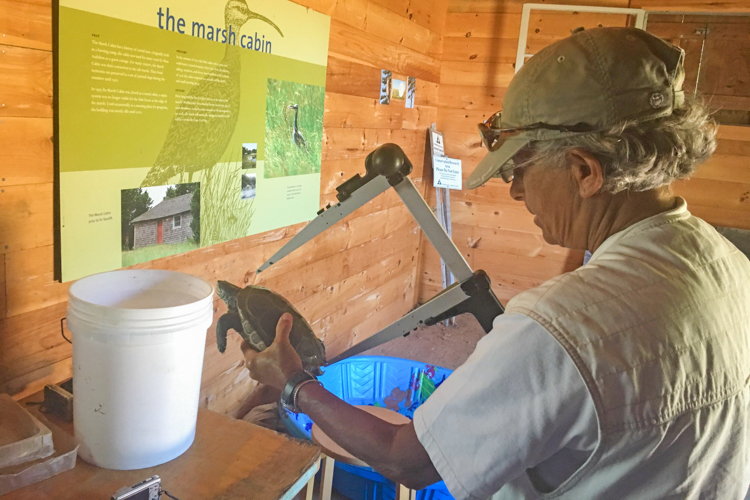
The highlight, by far, is how we mark the end of each year by volunteering to rescue cold-stunned sea turtles on Wellfleet and Truro beaches. These turtles get trapped in Cape Cod Bay’s cooling waters, especially when it gets below 50 degrees F; they become cold-stunned and thus lose the ability to swim south into semi-tropical and tropical areas.
We keep our phones handy so we can respond to calls from Wellfleet Bay’s Turtle Rescue Team. When the wind is howling from a westerly direction, we anticipate
being called to walk along a specific stretch of beach to look for turtles. We prepare for the cold, the wind, and a good sandblasting.
Our gear is always ready near the front door: boots, down parkas, hats, gloves, and headlamps for night patrols. This past year, we included face masks to our supplies so that we could adhere to COVID protocols. Our sled for transporting turtles from the beach is in the trunk of our car, along with a banana box or two in case we are asked to bring a turtle to the sanctuary.
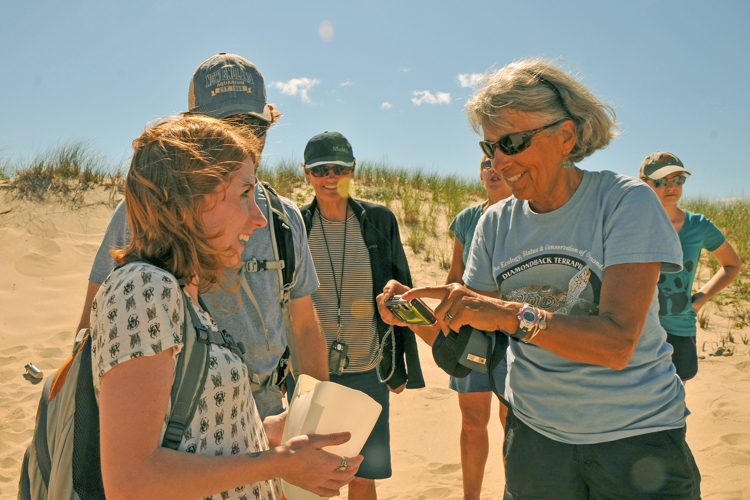
We have seen some spectacular sunrises and sunsets while on turtle patrol. It is quite eerie yet also amazingly beautiful to be on a beach in the middle of the night. If you see a headlamp headed your way, who else could it be but another sea turtle volunteer!
Most of the two dozen or so turtles we rescued in 2020 were Kemp’s Ridleys, but the last few were loggerheads. Every live, rescued turtle has the potential to contribute to future generations of these endangered reptiles. It is tremendously satisfying to know that these rescued turtles have a chance to live a longer life, mature, and produce baby turtles.
In Your Words is a regular feature of Mass Audubon’s Explore member newsletter. Each issue, a Mass Audubon member, volunteer, staff member, or supporter shares their story—why Mass Audubon and protecting the nature of Massachusetts matters to them. If you have a story to share about your connection to Mass Audubon, email [email protected] to be considered for In Your Words in a future issue!


